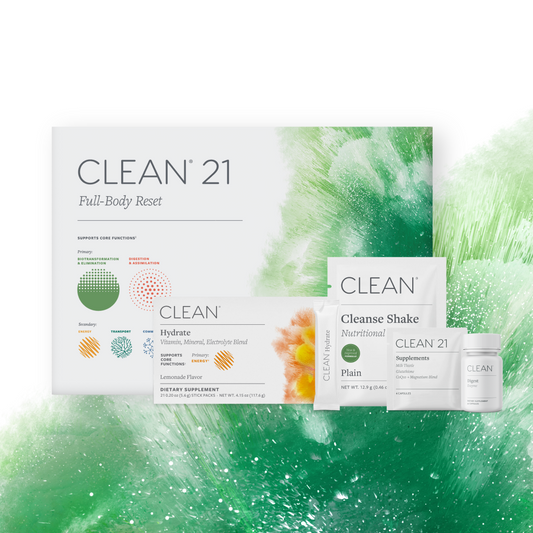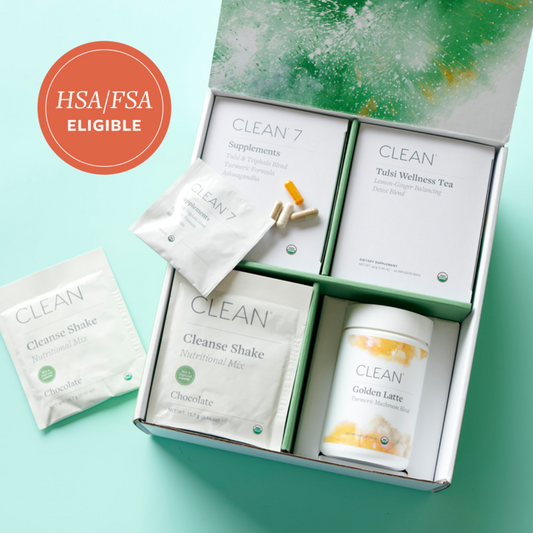
Top 5 Reasons to Take Micro Breaks from Booze
|
Discover the top 5 reasons to take a microbreak from booze for enhanced cognitive function, liver health, sleep quality, mood, and gut microbiome balance. |

We know many people enjoy a good drink or wine glass here and there, which is why balance is so important. But how much is too much? This is an ongoing question. The Centers for Disease Control and Prevention (CDC) recommended guidelines include up to one drink a day for women and two a day for men.
Breaking up with alcohol, even for a short period of time, can have enormous benefits for your physical, mental and emotional health.
If you're on the fence about this, check out some of these benefits from taking booze microbreaks below:
1. Boost Cognitive Function
A study published in July of last year in the journal PLOS Medicine found that even moderate drinking (7-14 drinks a week) contributed to higher levels of iron in the brain, which in turn decreased cognitive performance. Cognitive performance, also called 'executive function' was measured with the trail-making test, fluid intelligence with puzzle tasks, and reaction time by a task based on a card game. This is one of the largest studies performed measuring the impact of moderate alcohol consumption.
2. Detox Your Liver
Detoxing alcohol from your body taxes your liver since it has to do most of the work. This leaves less capacity to detox the regular waste products from our metabolism and the environmental toxins we consume.
When alcohol reaches the liver, it can induce triglyceride accumulation and hepatic oxidative stress, undermining optimal liver function. As this study suggests, "Chronic alcohol use impairs not only gut and liver functions, but also multi-organ interactions, leading to persistent systemic inflammation and ultimately, to organ damage."
Taking a microbreak from boozewill help restore gut and liver function to reduce inflammation in the body. As we know now, chronic inflammation is one of the precursors to most diseases in the modern world.

3. Sleep Better
We all know sleep is not only quantity but quality. When we have even one to two drinks, the effect of alcohol in our sleep is that it makes it more fragmented. This means it causes us to have less deep sleep and wake up more often during the night—some of these times we will remember and others we won't. Another thing that alcohol does to your sleep is that it blocks REM sleep. REM sleep is known to be important for emotional regulation and memory processing.
So the closer you drink it to bedtime the more likely your sleep will become lighter and more interrupted. A study published in 2018 found that low amounts of alcohol (less than one drink for women and two for men) decreased sleep quality by 9.3% and moderate drinking (one drink for women and two for men) decreased sleep quality by 24%. More info on how alcohol affects sleep here.

4. Improve Mood
When we drink alcohol, the part of our brain that controls inhibition is affected, that is the prefrontal cortex. This makes you feel more relaxed and confident initially. The problem is that this effect is short-lived and once it wears off you start feeling the depressive effect of alcohol in your mood. This can be tricky because what happens then is that we want to reach out for another drink to feel the inhibition and confidence effects again, which can create dependence.
As you decrease alcohol consumption you are able to reduce impulsive behavior while drinking. There is also evidence that moderate alcohol consumption will affect your prefrontal cortex—reducing inhibition and increasing impulsive behavior—even when you are not drinking. So if you take a break from alcohol, you will likely reduce impulsive behavior even when not drinking. Some examples of impulsive behavior include lack of premeditation, urgency, lack of perseverance, and sensation seeking.
5. Balance Your Microbiome
Alcohol disrupts our microbiome. "The microbiome is defined as the collective genomes of the microbes (composed of bacteria, bacteriophage, fungi, protozoa and viruses) that live inside and on the human body. We have about 10 times as many microbial cells as human cells," according to the The Human Microbiome Project.
Our microbiome is composed of 10-100 trillion microorganisms in the gut. Not only has it been found to impact cravings, mood, vitamin absorption, and gut health in general, our intestinal flora is also crucial for detoxification, as it detoxifies 40% of all exotoxins that enter our body.
Our microbiome continuously sends signals to our brain in ways that regulate mood. But, when alcohol enters our body, it kills our gut bacteria indiscriminately, meaning some beneficial gut bacteria are killed as well. This of course impacts our mood, but also reduces the microbiome's ability to detoxify external toxins, and weakens the lining of our gut wall, leading to leaky gut.
Leaky gut becomes problematic because it means the gut wall becomes permeable and lets harmful bacteria and toxins pass through to our bloodstream, affecting organs and functions all around our body. This process inevitably weakens our immune system, since it has to constantly react, defending us against these microorganisms and anything that resembles a threat within our bodies.

Thus, taking a break from alcohol helps rebalance our microbiome—the proportion of beneficial to less-beneficial bacteria in the gut—and strengthen our gut wall. If on top of that we add 2-4 servings of low-sugar fermented foods a day, we are able to replenish the healthy bacteria in the gut and reduce inflammation. Some examples of foods that help replenish healthy bacteria are kimchi, sauerkraut, and kefir.
Learn more about the effects of alcohol in our brain and bodies in the Huberman Lab Podcast Episode: What Alcohol Does to Your Body, Brain & Health.






